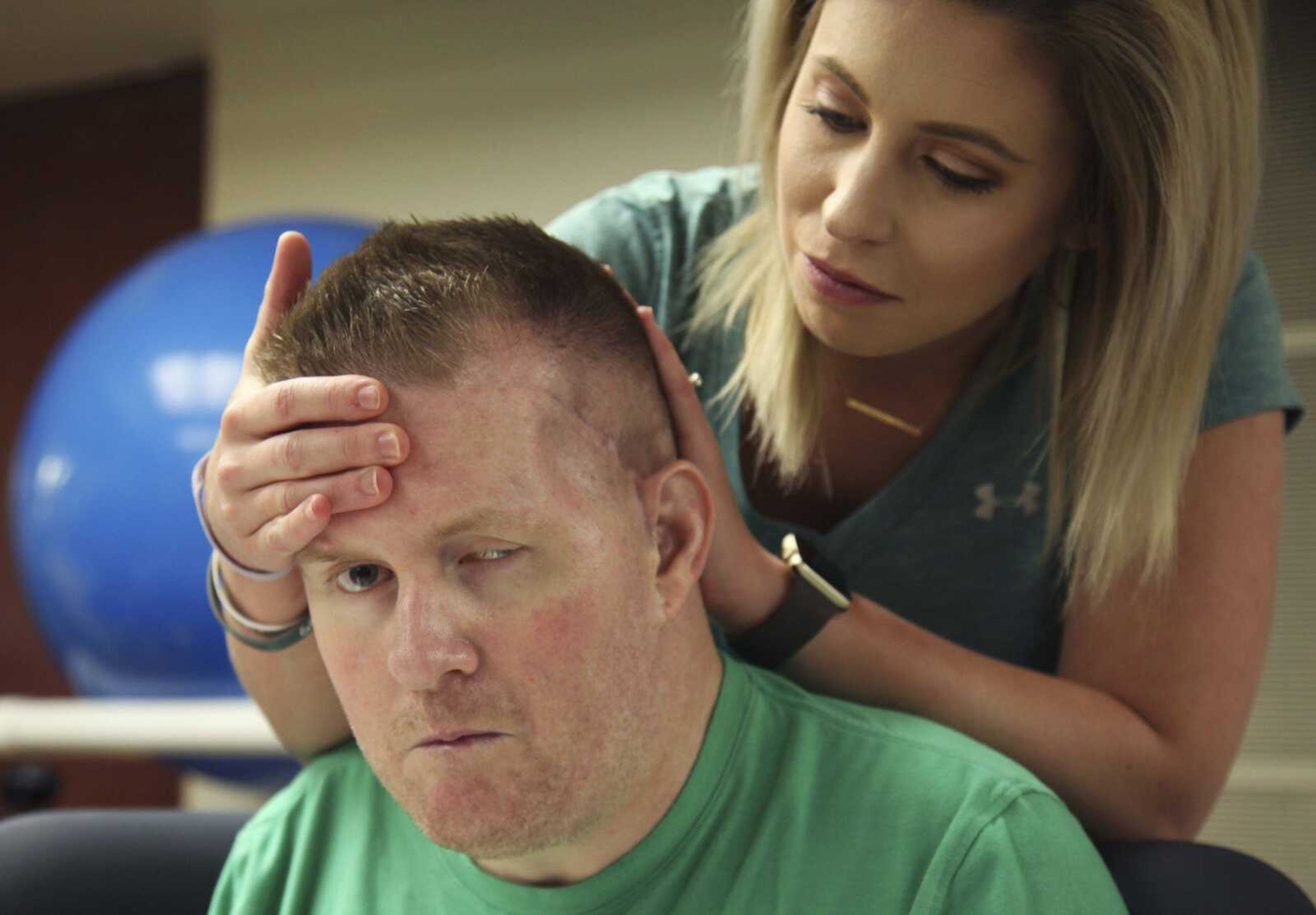Wounded deputy still defying odds a year after deadly ambush
HOUSTON -- Doctors didn't expect Nick Tullier to survive after a gunman shot him in the head, stomach and shoulder during an ambush that killed three other law-enforcement officers last summer in Louisiana's capital city. A year later, the 42-year-old sheriff's deputy still is defying the odds and the grim prognosis issued after the July 17 attack...
HOUSTON -- Doctors didn't expect Nick Tullier to survive after a gunman shot him in the head, stomach and shoulder during an ambush that killed three other law-enforcement officers last summer in Louisiana's capital city.
A year later, the 42-year-old sheriff's deputy still is defying the odds and the grim prognosis issued after the July 17 attack.
Tullier's doctors initially feared he would die within hours.
Later, they warned his family brain damage could leave him in a vegetative state for the rest of his life.
After months in a Baton Rouge hospital, Tullier was conscious when he was transferred in November to a Houston rehabilitation hospital, but his arms and legs appeared to be paralyzed.
Today, the father of two sons can nod his head to answer questions with a yes or no. Grueling physical therapy has helped restore some movement in his limbs.
He can smile and even laugh. And he recently spoke his first word since the shooting, an utterance that sounded like "hello."
"He's got a very, very long road ahead of him, but he hasn't given up," said his father, James. "He's going to fight."
James Tullier posts daily Facebook updates on his son's condition from TIRR Memorial Hermann Hospital, where he and Nick's mother, Mary, and fiancee, Danielle McNicoll, take turns watching over him. They moved here with him from Baton Rouge and will stay here as long as he does.
"Wherever Nick is at, that's where our home is," his father said. "Nick is our world right now."
On the Sunday morning of the shooting, Tullier was working the day shift for the East Baton Rouge Parish Sheriff's Office.
Less than two weeks had passed since a white Baton Rouge police officer shot and killed Alton Sterling, a 37-year-old black man. Racial tensions in the city still were simmering.
Tullier and another deputy were eating breakfast when they heard a radio call about an armed man near a convenience store about a mile away. Gavin Long, a 29-year-old black military veteran from Kansas City, Missouri, already had wounded two Baton Rouge police officers and a sheriff's deputy fatally by the time Tullier and Sgt. Bruce Simmons arrived, according to a district attorney's report .
Once on the scene, Tullier checked on an empty rental car, unaware it was the gunman's. He was walking back to his patrol vehicle when Long shot him in the stomach from nearby woods. Long shot him twice more after he climbed into his vehicle.
The gunman also wounded Simmons before tactical officers showed up and killed him. The attacker left behind a note calling his actions a "necessary evil" so he could inflict "destruction" on police officers.
When Tullier came to Houston eight months ago, his legs were frozen in an extended position. His arms were locked into his chest, his fingers curled up tight.
McNicoll said her fiance has come a long way. It used to take a couple of people to hold him upright on a mat or at the edge of a bed.
"And now some days, for the most part, he can hold himself up," she said.
Dr. Sunil Kothari, one of the doctors at the Houston hospital, said Tullier's cognitive abilities have "outstripped" his physical abilities.
"There's more that he wants to do, knows in some sense how to do, and just can't execute because of his neuromuscular and other impairments," he said.
Connect with the Southeast Missourian Newsroom:
For corrections to this story or other insights for the editor, click here. To submit a letter to the editor, click here. To learn about the Southeast Missourian’s AI Policy, click here.









